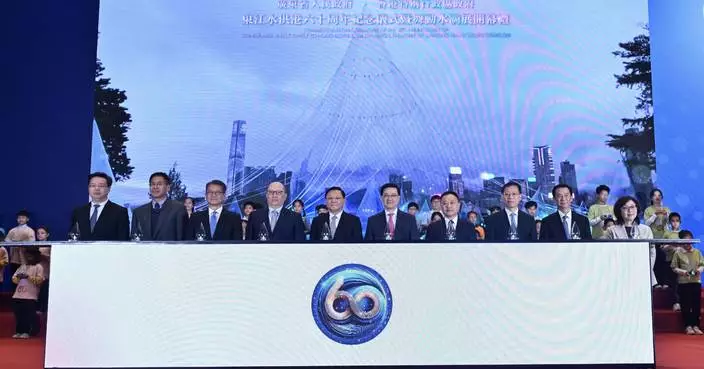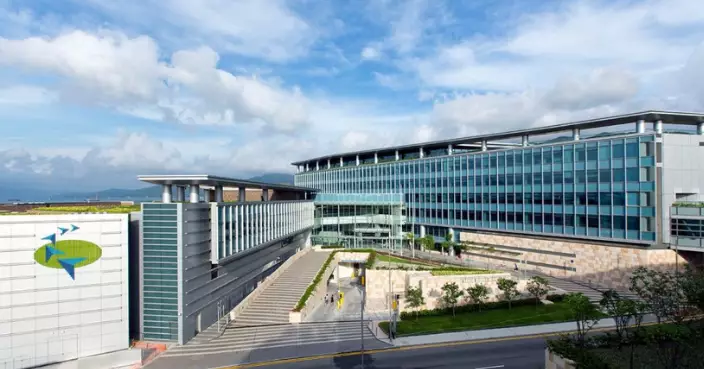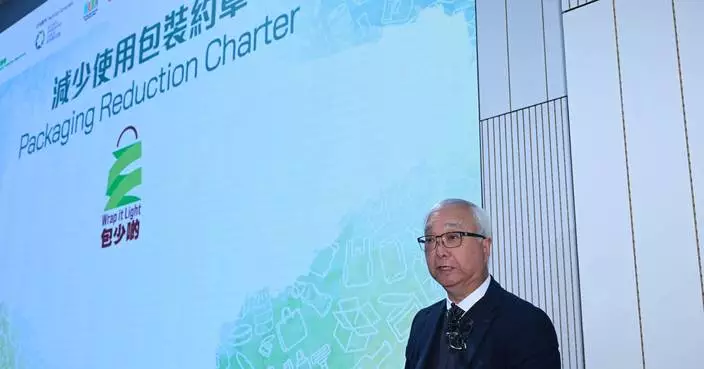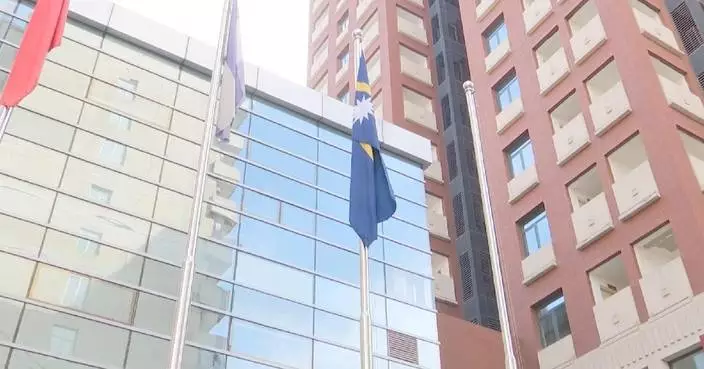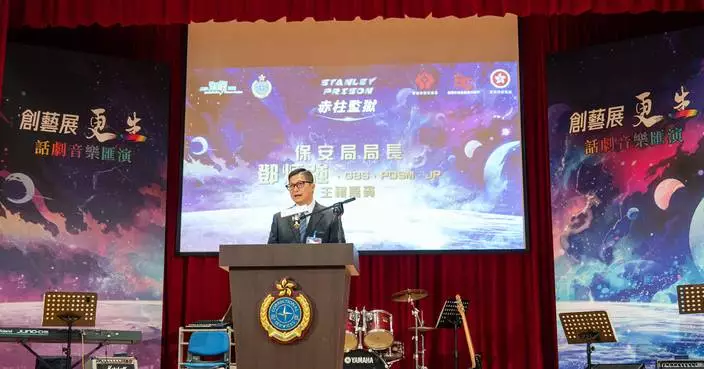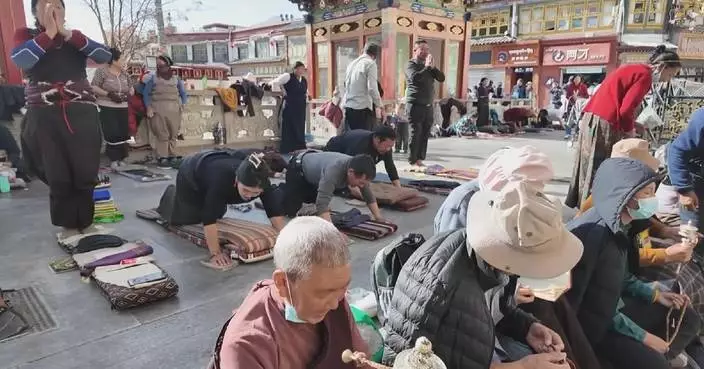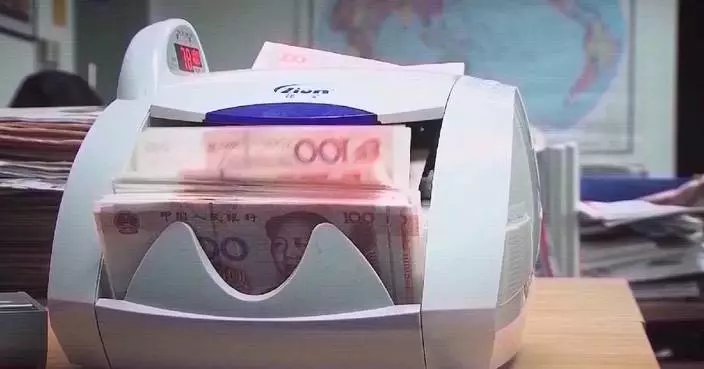EPD relentlessly tackles illegal operation of concrete batching plants to protect environment and public health
The Environmental Protection Department (EPD) is committed to safeguarding the environment, with tackling air pollution to protect public health being one of its core priorities. In addition to stringent enforcement, the Government also continually reviews and refines relevant legislation while promoting public education to foster a healthy and pleasant living environment for all. The recent amendment to the Air Pollution Control Ordinance (APCO) is one such significant initiative.
To more effectively combat unlicensed specified process (SP) operations, the Government has amended the APCO by introducing a statutory closure notice mechanism and refining the scope of "cement works" and the definition of "premises" under specified processes. This aims to prevent misinterpretation or circumvention of regulations. The Air Pollution Control (Amendment) Bill 2024 (Amendment Bill) was passed at its third reading during the Legislative Council meeting on March 19, 2025. The legislation has been gazetted today (March 28) and will come into effect on April 11.
An EPD spokesperson stated that the Amendment Bill empowers the Director of Environmental Protection to issue a closure notice to premises if he or she has reasonable cause to believe that unlicensed SP operations are taking place. This has proven decisive in addressing illegal operations by two concrete batching plants (CBPs) located at 20 and 22 Tung Yuen Street in Yau Tong. Following the passage of the Amendment Bill, the department has already received notification from the owner of the CBPs, indicating that, except for the works relating to the demolition of the concerned plants, they will cease all operations of concrete batching process and related operations by early April.
Under the APCO, SPs (including cement works) are identified as major sources of significant air pollution and must obtain a valid SP license under the APCO to operate. Due to the failure to meet the relevant requirements of the APCO, the renewal of SP licenses for the two CBPs at 22 and 20 Tung Yuen Street in Yau Tong were refused by the EPD in April 2021 and April 2022, respectively. The operator subsequently lodged appeals to the Air Pollution Control Appeal Board, and after the appeals were dismissed, they continued to operate without valid SP licenses by resorting to judicial reviews and various legal proceedings. This has resulted in a persistent air pollution and environmental nuisance, affecting the lives and health of nearby residents and causing significant distress.
The EPD has been making unremitting efforts to follow up the operation of these two CBPs, and has been employing a two-pronged strategy of continuous enforcement actions and legislative amendments to tackle these illegal operations that would harm the environment and public health. To date, there have been a total of 39 summonses for criminal prosecution against the operator. On October 4, 2024, the operator was convicted of two offences at the Kwun Tong Magistrates' Court for failing to comply with the requirements of the air pollution abatement notice. Another 28 summonses are scheduled for hearing on April 7, 2025, while the remaining nine summonses of non-compliance are still in process.
The spokesperson said the EPD will continue to closely monitor the situation. If the two concerned CBPs are found to persist in operating without SP licenses in defiance of licensing requirements after the Amendment Bill takes effect, the EPD will take stringent actions under the newly amended Ordinance to halt such unlicensed SP operations and protect the health of Yau Tong residents.
"To meet industry needs and market developments, the EPD introduced a series of measures in mid-November last year to streamline the application and processing procedures for specified process licenses for cement works. These include simplifying application forms and required documents, as well as enabling applicants to conduct simple air quality assessments through an online platform. The industry has generally responded positively to these changes. These measures have proven effective, significantly reducing the time required for processing license applications related to cement works," the spokesperson added.
CHP reminds public of precautions against cold weather
The Centre for Health Protection (CHP) of the Department of Health (DH) today (April 1) reminded the public, particularly the elderly and people with chronic illnesses, to adopt appropriate measures to protect their health in view of the cold weather.
Cold weather can easily trigger or exacerbate diseases, especially among the elderly and persons suffering from heart disease, respiratory illnesses or other chronic illnesses.
Elderly people have less insulating fat beneath their skin to keep them warm, and their body temperature control mechanisms may be weaker. Their bodies may not be able to respond appropriately to cold weather.
Some senior persons may have decreased mobility, which can impair their ability to generate and conserve body heat. Chronic illnesses, such as hypertension, diabetes and endocrine disorders, may undermine the health of elderly people and lower their metabolic rate, subsequently causing their bodies to generate less heat. Persons with chronic illnesses, such as chronic respiratory illnesses or heart disease, are vulnerable to disease aggravation due to cold weather.
The CHP reminded the public, in particular the elderly and persons with chronic illnesses, to adopt the following preventive measures:
Take note of the weather forecast. Wear warm clothing, including hats, scarves, gloves and socks, accordingly;
Consume sufficient food to ensure adequate calorie intake;
Perform regular exercise to facilitate blood circulation and heat production;
Stay in a warm environment and avoid prolonged outdoor exposure;
Use heaters with care and maintain adequate indoor ventilation; and
Seek medical advice if feeling unwell.
In addition, the public should avoid alcoholic beverages.
Drinking alcohol does not keep you warm. Alcohol accelerates the loss of body heat through dilated blood vessels, resulting in chilling instead.
Parents should ensure that babies are sufficiently warm, but it is also important to keep babies relatively lightly clothed to avoid overheating.
Parents should observe the following safety measures when putting their children to bed:
Keep the room well ventilated and at a comfortable temperature;
Always place babies on their backs to sleep. Leave their heads, faces and arms uncovered during sleep;
Babies do not need pillows. Place babies on a firm and well-fitted mattress to sleep. Avoid soft objects, pillows and loose bedding;
Let babies sleep in a cot placed near their parents' bed; and
Maintain a smoke-free environment.
In addition, many respiratory pathogens, including influenza and SARS-CoV-2, may have increasing activity and community transmission during winter. Seasonal influenza vaccination is recommended for all persons aged 6 months or above, except those with known contraindications. Persons at higher risk of influenza and its complications, including the elderly and children, should receive seasonal influenza vaccinations early. Please see details of the vaccination schemes on theCHP'swebsite.
A person infected with influenza and COVID-19 at the same time may be more seriously ill and have a higher risk of death. It is important for elderly persons, especially those residing in residential care homes, to receive both seasonal influenza and COVID-19 vaccinations. They should also receive an additional booster against COVID-19 according to recommendations as soon as possible. The public should also maintain good personal and environmental hygiene against respiratory illnesses and note the following:
Surgical masks can prevent the transmission of respiratory viruses from ill persons. It is essential for persons who are symptomatic (even if having mild symptoms) to wear a surgical mask;
Wear a surgical mask when taking public transport or staying in crowded places. It is important to wear a mask properly, including performing hand hygiene before wearing and after removing a mask;
Avoid touching one's eyes, mouth and nose;
Wash hands with liquid soap and water properly whenever possibly contaminated;
When hands are not visibly soiled, clean them with 70 to 80 per cent alcohol-based handrub;
Cover the mouth and nose with tissue paper when sneezing or coughing. Dispose of soiled tissue paper properly into a lidded rubbish bin and wash hands thoroughly afterwards;
Maintain good indoor ventilation;
When having respiratory symptoms, wear a surgical mask, refrain from work or attending classes at school, avoid going to crowded places and seek medical advice promptly; and
Maintain a balanced diet, exercise regularly, take adequate rest, do not smoke and avoid overstress.
Food-borne diseases, particularly those linked to hotpot cuisine, are also common in cold weather. The following preventive measures should be taken:
Wash hands before handling and consuming food;
Do not patronise unlicensed vendors or those with poor hygienic standards while selecting food;
Wash and cook all food thoroughly;
Vegetables should be washed thoroughly in clean running water before cooking and consumption. When appropriate, scrub hard-surfaced vegetables with a clean brush to remove dirt and substances, including pesticide residues and contaminants, from surfaces and crevices;
Shrimps should be fully cooked until the shells turn red and the flesh turns white and opaque;
For shellfish such as scallops and geoduck, scrub the shells thoroughly and remove the internal organs;
Do not eat any undercooked freshwater aquatic products. To ensure that the food is thoroughly cooked, the centre of the food should reach a temperature of at least 75 degrees Celsius to destroy pathogen;
Most hotpot ingredients should be stored in a refrigerator at 4 degrees C or below, while frozen food should be stored in a freezer at -18 degrees C or below;
Never use raw eggs as a dipping sauce for hotpot; and
Use different sets of chopsticks to handle raw and cooked food to avoid cross-contamination.
In addition, when using fuel-burning appliances, especially in indoor areas, the public should ensure adequate ventilation to avoid harmful exposure to carbon monoxide (CO) and prevent CO poisoning.
For more health information, the public may call the DH's Health Education Infoline (2833 0111) or visit theCHP's websiteandFacebook Fanpage.
The public may also call Dial-a-Weather (1878 200) or visit thewebsite of the Hong Kong Observatoryfor the latest weather information and forecasts, or itspage on Weather Information for Senior Citizens.




